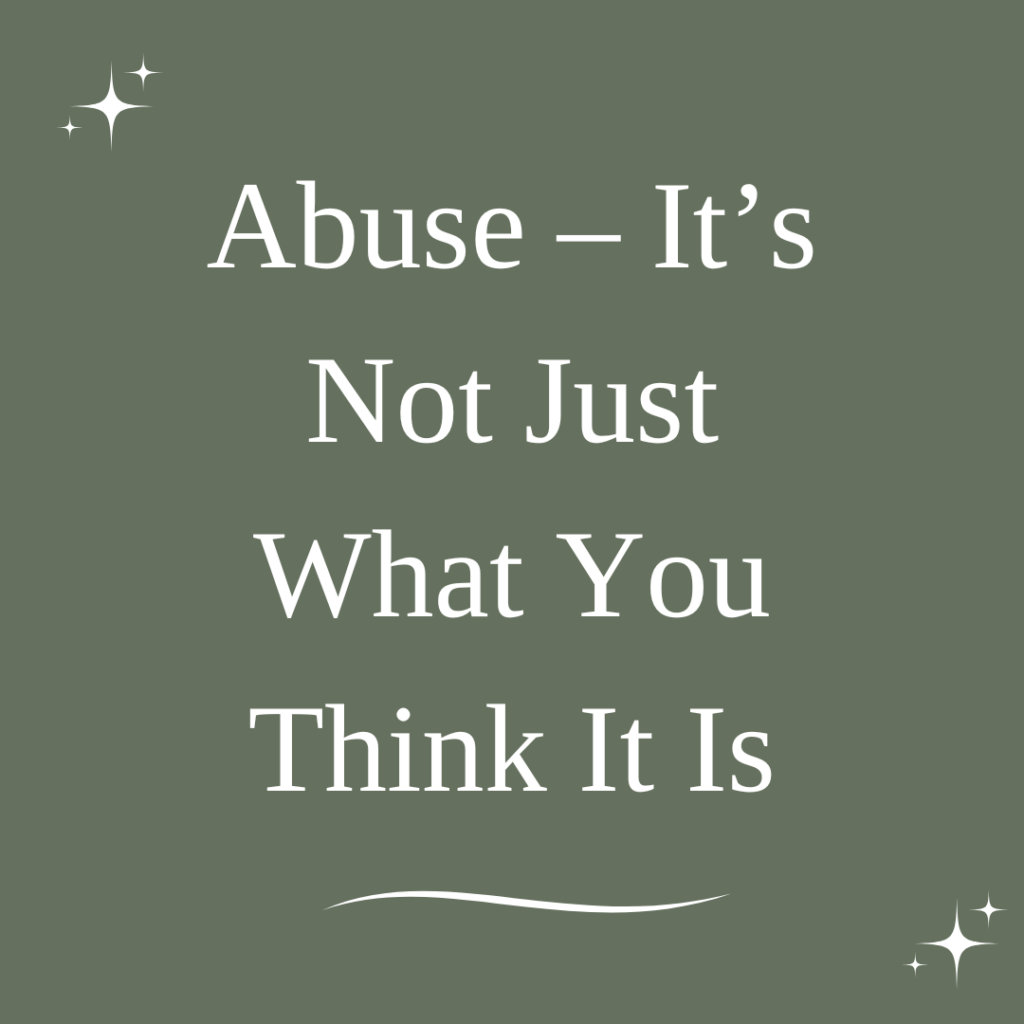Picture this: an adult comes to me for therapy, and we talk about things that have happened in their life, as a child and/or as an adult. As the conversation progresses, I quickly realise that unbeknown to them, what they are describing constitutes abuse. It might be hard to believe, but I’ve experienced this many times with clients over the years.
How Is This Possible?
There are lots of reasons someone might not recognise their own experience of abuse. Societal views play a big role. If we look at the dictionary definition of abuse, the limitations of our understanding are obvious. For example, ‘to treat with cruelty or violence, especially regularly or repeatedly’ brushes over the fact that abuse doesn’t have to be a pattern of behaviour. It can be a single event. This definition could also be very confusing in the context of ‘love bombing’ – a form of psychological and emotional abuse that involves intense displays of affection and attention in order to manipulate and control someone.
We might struggle to recognise abuse because of the people who have perpetrated it. For some, it’s very difficult to accept that those closest to them have been abusive. We might feel we have to stand up for our abusers, especially if they were parents or caregivers. The reality of realising the behaviour you experienced was abuse might simply be too painful to bear.
What Constitutes Abuse?
Much like trauma is not simply what happened to you but your internal response to a certain situation, I believe abuse is about more than the experience itself. For me, the long-term emotional and physical impact of the experience should also determine whether it meets the threshold of abuse or not.
Abuse can be sexual, physical, economic/financial or emotional. Most people can probably identify the first two fairly easily. Common examples include things like hitting someone or touching them sexually and inappropriately without consent. Economic or financial abuse is a form of abuse where one person has control over the victim’s access to economic resources, diminishing their capacity to support themselves and forcing them to depend on the perpetrator financially. Although awareness has increased in recent years, emotional abuse can be harder to recognise. This is the form of abuse I’d like to explore more deeply with you in the rest of this article.
Emotional Abuse Explained
The NSPCC defines emotional abuse as ‘any type of abuse that involves the continual emotional mistreatment of a child’. However, I would argue it doesn’t have to be a child – it can be a person of any age. Emotional abuse can occur in the workplace, in intimate relationships or friendships.
With emotional abuse, the perpetrator may insult, humiliate, or generally instil fear in an individual. This can be extremely damaging, particularly if the emotional abuse happened when you were very young.
In childhood, emotional abuse can also look like being punished disproportionately for your behaviour. For example, your parents not talking to you for days after you’ve done something they perceived as naughty. It could also be a parent or caregiver putting you down or being extremely critical of you, even to the point of making you doubt your own reality.
As I mentioned, these days, emotional abuse is being talked about a lot more. Hopefully, increased understanding and emphasis on our emotional needs, especially in childhood, will not only help prevent emotional abuse, but it will also make it easier for people to recognise abusive experiences so they can seek the right support for themselves or others.
Healing From Abuse - The Importance of Validation
Although there are legal definitions of abuse, I believe there is a subjective element to our understanding of it. Regardless of how you or others might categorise what you’ve been through, your experiences are valid and so are your feelings.
Find Out More
However you choose to categorise your experiences, if you’re struggling, I can help. You can book a free consultation here. I also share lots of tips and advice via Instagram.
